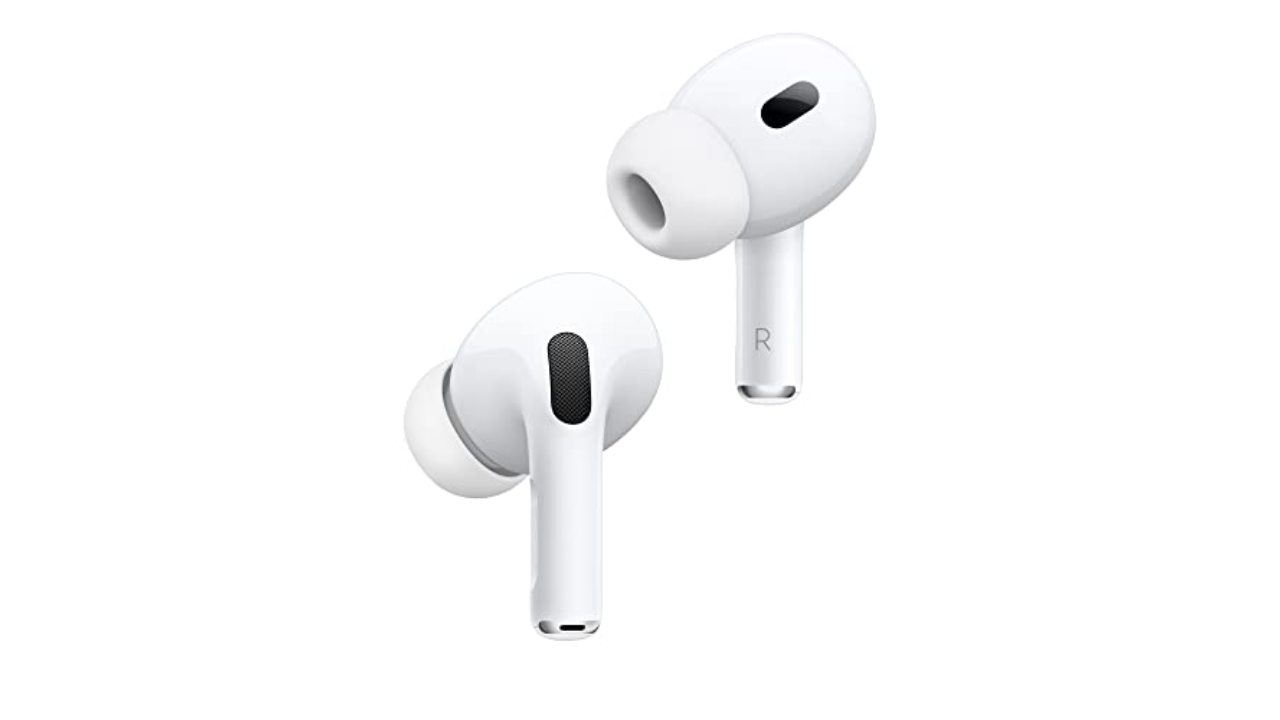We independently evaluate the products we review. When you buy via links on our site, we may receive compensation. Read more about how we vet products and deals.
Apple AirPods Pro 2: What you need to know about this FDA-authorized OTC hearing aid
If you're in the market for hearing aids, Apple's AirPods Pro 2 will soon be an option — at a fraction of the cost of most competitors.
If you're among the roughly 28.8 million American adults who could benefit from using hearing aids, consider this before spending up to $2,500 on out-of-pocket expenses for over-the-counter [OTC] or prescription devices: "You may already have a hearing aid in your hand and not even know it," says Catherine Palmer, director of audiology at the University of Pittsburgh Medical Center and past president of the American Academy of Audiology. Palmer is referring to Apple's AirPods Pro 2. As of Sept. 12, the Apple earbuds have received FDA authorization as a hearing aid — a development that promises to make hearing assistance more affordable, accessible, and even more fashionable than ever before. The catch? The software to enable the hearing aid functionality isn't quite available yet.
Here's what you need to know about this innovation:
How AirPods Pro 2 help with hearing loss
Straight out of the box, the AirPods Pro 2 aren't technically a hearing aid, but with a simple software installation that Apple says will be available before the end of 2024, that's what they become.
It's pretty simple: Once the update is available later this fall, you take the hearing test in the Apple Health app and install the Hearing Aid Feature (Settings → Accessibility) on your AirPods Pro 2 and compatible iPhone or iPad. (The ability will arrive with, or sometime after, the iOS 18 software update, available Sept. 16.)
Once the test results sync, the smart device creates a personalized hearing profile that will transform your AirPods Pro 2 into fully functioning hearing aids that automatically boost certain sounds, such as voices, and reduce other sounds, like ambient noise — no prescription required. Plus, every sound that passes through the earbuds (music, podcasts or phone calls) is properly adjusted, too. As an added benefit, AirPods Pro 2 also offers a Hearing Protection feature for use in loud environments like concerts.
AirPods hearing aids: What the experts say
The new AirPods Pro 2 hearing aids feature will be a "great solution for adults with mild to moderate hearing loss who want to pursue self-care — and are comfortable wearing [earbuds]," says Palmer. That's especially true for the one in four adults who need hearing aids, but who don't use them due to the cost, embarrassment or other real or perceived barriers.
This innovation could be a real game changer for those folks, notes Dr. Janet Choi, assistant professor of clinical otolaryngology at Keck School of Medicine at USC. "[This technology] provides a more accessible and affordable way to screen and amplify hearing. And the familiar — and cool — look of AirPods may reduce the stigma often associated with wearing hearing aids," says Choi, whose groundbreaking 2024 research found that adults with hearing loss who regularly use hearing aids have a 24% lower risk of mortality than those who never wear them, likely due to improvements in mental health and cognition.
Meredith Resnick, spokesperson for the Hearing Loss Association of America, sees all of this as a positive step forward. "This is exactly the kind of innovation we hoped the OTC hearing aid market would spur," she says. "Having more choices for hearing aids at various price points encourages people to treat hearing loss sooner, which is the goal."
That said, experts stress that professional guidance remains crucial. "A diagnostic hearing test with an audiologist is still recommended," says Choi. Smartphone screenings can sometimes be inaccurate, especially in noisy environments. And hearing loss can be a sign of other underlying conditions that need attention. Moreover, an audiologist can help users navigate the new technology and improve their experience. As Palmer points out, an audiologist can even make a custom mold for the AirPods to enhance fit and comfort.
Can you use FSA or HSA funds to purchase AirPods Pro 2?
While the answer isn't yet 100% clear, given that hearing aids are a qualifying expense, reimbursements may be possible. Check with your FSA or HSA administrator (and make sure they're aware of the AirPods Pro 2 capabilities and the FDA authorization of their use). If the administrator gives you the go-ahead, you'll likely need to submit a letter of medical necessity from your doctor or audiologist along with your receipt before reimbursement is made.
Not thrilled about using AirPods as hearing aids? No problem. There are other OTC hearing aids that can work for you. Here, check out some of the competition for the best over-the-counter hearing aids according to doctors and users.
Meet our experts
Catherine Palmer, Ph.D., director of audiology at the University of Pittsburgh Medical Center and past president of the American Academy of Audiology
Janet Choi, MD, assistant professor of clinical otolaryngology at Keck School of Medicine of USC
Meredith Resnick, spokesperson for the Hearing Loss Association of America

